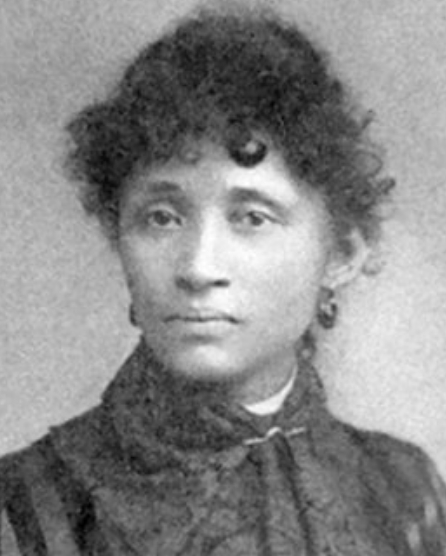On this date in 1942, Lucy Parsons — labor organizer, social reformer and anarchist — died in Chicago. Born Lucia Carter, the exact date of her birth in Virginia beyond the year 1851 is unknown. Her mother was a slave and it’s suspected that her father was a physician and slave owner named Thomas Taliaferro who moved in 1862 or 1863 to Texas with Lucia, her mother and brother and another young woman. (Goddess of Anarchy: The Life and Times of Lucy Parsons, American Radical, Jacqueline Jones, 2017)
Racially mixed, she claimed Hispanic and indigenous heritage, denying any Black ancestry, possibly due to the stigma attached. She had a child with an older man but the paternity was uncertain, according to biographer Jones. It may have been Oliver Benton, a former slave owner who considered Lucia his wife, but it’s likely they never married, despite Benton’s claim they were.
Some sources say that in 1872 when she was 21 and he was 27, she married Albert R. Parsons, a white newspaper editor active in Republican politics, though there is no official record of the marriage. Now going by Lucy Parsons and living in Chicago, she gave birth to a son, Albert (b. 1879), and a daughter, Lulu (b. 1881).
The Parsons became heavily involved in the socialist labor movement. On May 4, 1886, her husband Albert spoke to a crowd of about 25,000 people about peaceful negotiations in the movement. Later that day, there was a bombing with eight people killed, which became known as the Haymarket Affair. Albert and three others were accused, prosecuted and executed.
Parsons became widely known for her incendiary speeches and was arrested and jailed many times. In 1892 she founded the newspaper Freedom: A Revolutionary Anarchist-Communist Monthly, which focused on labor organizing and Black liberation. In 1905 she was the second woman to join the Industrial Workers of the World (aka the Wobblies) and edited its newspaper The Liberator.
She worked with the International Labor Defense to provide support to 9 African-American teens known as the Scottsboro Boys, who were falsely accused in 1931 of raping two white women on a train near Scottsboro, Ala. One of the women recanted her allegations and the death penalty was dropped for the defendants, who collectively served over 100 years in prison.
Parsons continued to give fiery speeches in Chicago’s Bughouse Square into her 80s, where she inspired Louis “Studs” Terkel. After her death, police seized her library of over 1,500 books and all of her personal papers.
“For the most part, Parsons avoided using religion as a vehicle of uplift,” wrote Willie J. Harrell in the Journal of International Women’s Studies. (Vol. 13 #1, March 2012) “When religion did appear in her anarchist discourse, it was more political than religious. ‘Let us sink such differences as nationality, religion, politics … There is no power on earth that can stop men and women who are determined to be free at all hazards’ [Parsons asserted].”
“The ‘all-wise’ and ‘all-merciful’ God is adding his quota to the sum of human wretchedness, for he is having the ‘windows of heaven’ all thrown open and pouring down floods upon the bowed heads of his most devout worshipers — the Negroes of the South and the farmers of the West — in the most awful devastation and death!” (Lucy Parsons: Freedom, Equality & Solidarity, Writings & Speeches, 1878-1937, 2003)
Parsons died in an accidental house fire at age 91 and was buried near her husband at Waldheim Cemetery near the Haymarket Martyrs’ Monument in Forest Park, Ill. (D. 1942)
PHOTO: Parsons in 1886 at about age 35.


